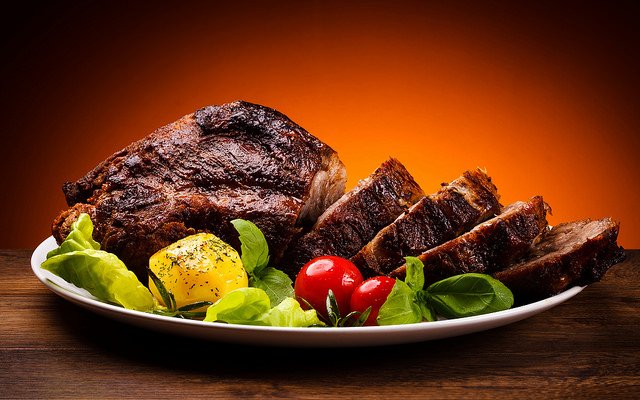
Despite the number of diet and food related studies released every year, determining what foods and drinks to consume for healthier living can often be overwhelming. Combine this confusion with diet trends, common myths or misinformation and the issue is quickly exacerbated.
Can reheating rice cause food poisoning? Are raw eggs a good hangover cure? Bill Marler, an attorney with 20-years experience dealing with food-poisoning lawsuits, was cited in an article by Health Insider from BottomLine, outlining what foods he's cut from his diet.
Over the course of his career, Marler has won more than $600 million foodborne-illness cases. Here are 6 things Marler now refuses to eat, a result of his experience and expertise.

Raw Oysters
Raw shellfish – especially raw oysters – are causing more foodborne-illnesses, lately. In fact, in the past five years, Bill Marler has seen more foodborne-illnesses linked to shellfish, than in the two preceeding decades. Marler suspects warming waters are the cause of this rise, as they produce more microbial growth.
“Oysters are filter feeders, so they pick up everything that’s in the water,” he explains to Bottomline. “If there’s bacteria in the water it’ll get into their system, and if you eat it you could have trouble. I’ve seen a lot more of that over the last five years than I saw in the last 20 years. It’s simply not worth the rise.”

Precut or Prewashed Fruit and Vegetables
In an attempt to fit more fruits and vegetables into the typical busy lifestyles of today, many consumers are opting for precut and prewashed alternatives. However, although convenience may reduce some of the daily strains, precut and prewashed foods carry a higher risk of contamination due to the increased amount of people who have handled the food.
“We’ve gotten so used to the convenience of mass-produced food—bagged salad and boxed salads and precut this and precut that,” Marler tells Bottomline. “Convenience is great but sometimes I think it isn’t worth the risk.”

Raw Sprouts
Surprisingly, uncooked or lightly cooked sprouts – including alfalfa, mung bean, clover and radish sprouts – are a common cause of bacterial outbreaks. According to Marler, more than 30 bacterial outbreaks – primarily salmonella and E. coli - in the U.S. have been linked to undercooked and lightly cooked sprouts, since the mid-1990s.
"There have been too many outbreaks to not pay attention to the risk of sprout contamination," Marler says. "Those are products that I just don't eat at all."

Rare Meat
Adding fuel to the fire in the age-old rare or well-done debate, Marler has some words of wisdom when it comes to ordering your steak. In many restaurants around the world, needle tenderizing has become a common practice.
The technique, which is used to break down the muscle fibers in the meat, making it more tender, involves slicing the meat or piercing it with needles. However, what many people don’t know is how this transfers bugs to the interior of the meat. If a restaurant uses this technique, Marler asks for his steak well-done. In other cases, Marler will ask for his steak medium rare.
“The reason ground products are more problematic and need to be cooked more thoroughly is that any bacteria that’s on the surface of the meat can be ground inside of it,” Marler says. “If it’s not cooked thoroughly to 160°F throughout, it can cause poisoning by E. coli and salmonella and other bacterial illnesses.”

Uncooked Eggs
Despite the fact that the salmonella epidemic of the 1980s and early ’90s was largely linked to eggs, many people still consume raw eggs - particularly individuals looking to build-up muscle mass. As many as 2.3 million eggs in the U.S. are contaminated with salmonella bacteria every year, according to USDA research.
"I think the risk of egg contamination is much lower today than it was 20 years ago for salmonella, but I still eat my eggs well-cooked,” Marler told Bottomline.

Unpasteurized Milk and Fruit Juices
Between 1998 and 2011, there were 148 food poisoning outbreaks linked to unpasteurized milk, also known as raw milk products, in the United States. Although this figure may seem too low to be a cause for concern, once you consider the fact that very few Americans consume these products, it becomes apparent that raw milk should be avoided.
When asked about unpasteurized packaged juices, Marler recalls the 1996 E. coli outbreak from unpasteurized Odwalla apple juice, which was one of his earliest cases. "There's no benefit big enough to take away the risk of drinking products that can be made safe by pasteurization," he says.
Food hygiene is very essential in life.
Because it helps maintain and regulate the body temperature also fitness.
No doubt improper food reduce life span
Thanks for sharing
You just made my day. I have a big problem with the poisoning stuff.
You just made my day.
I have a big problem with
The poisoning stuff.
- samkhan
I'm a bot. I detect haiku.
While cute, this @haikubot comment is considered to be spam, harms the blockchain, and is the reason why we will soon have to pay for comments like this with Resource Credits. The servers that maintain the blockchain are extremely expensive because of comments like this seeking low effort upvotes, so please do not reward this behavior.
Please consider using this link to give a small downvote of 15% or so to discourage these comments.
Any bot like this should respect the community by providing a whitelist to prevent the post in the first place and then provide a way to delete the comment for those who find this intrusive.
Interesting about the sprouts, I did not know that sprouts can do that. Thx for the info!